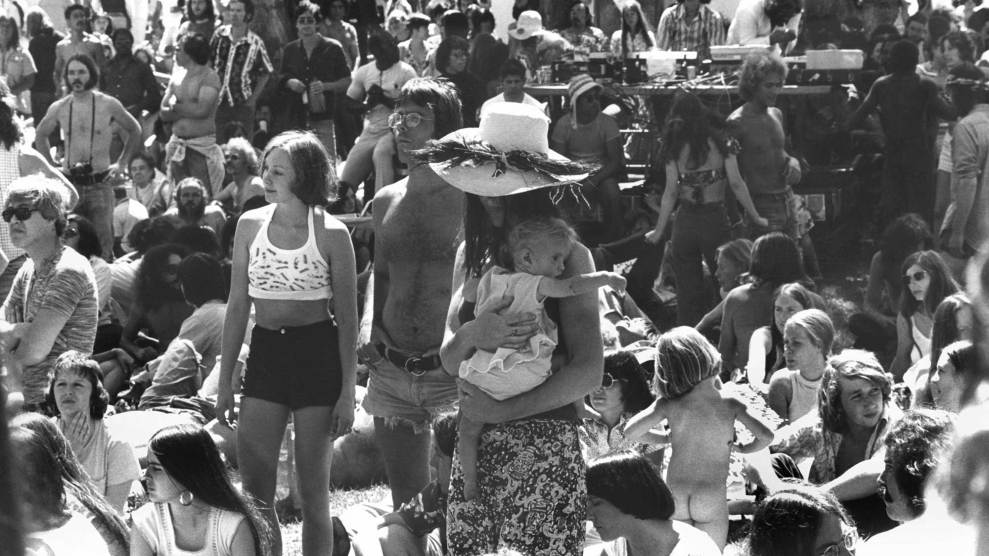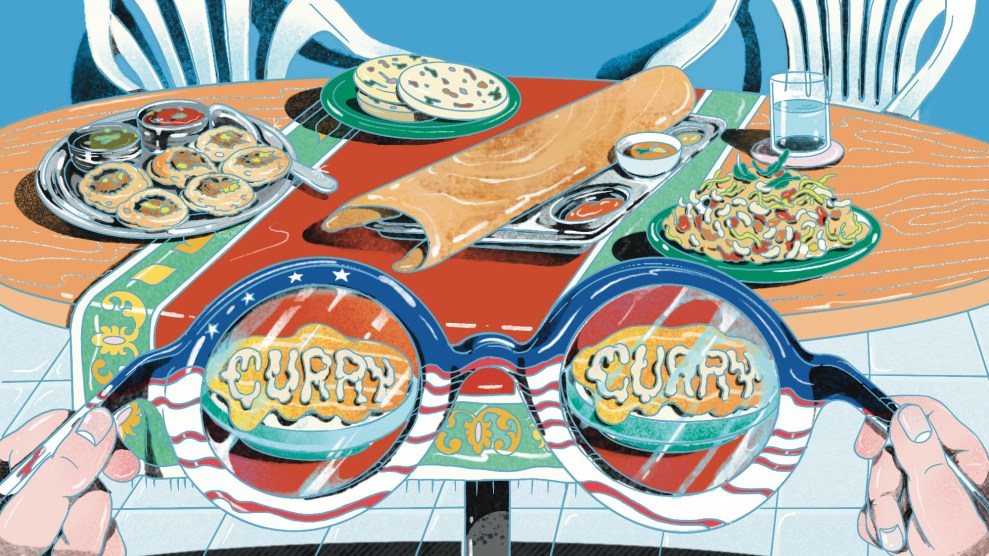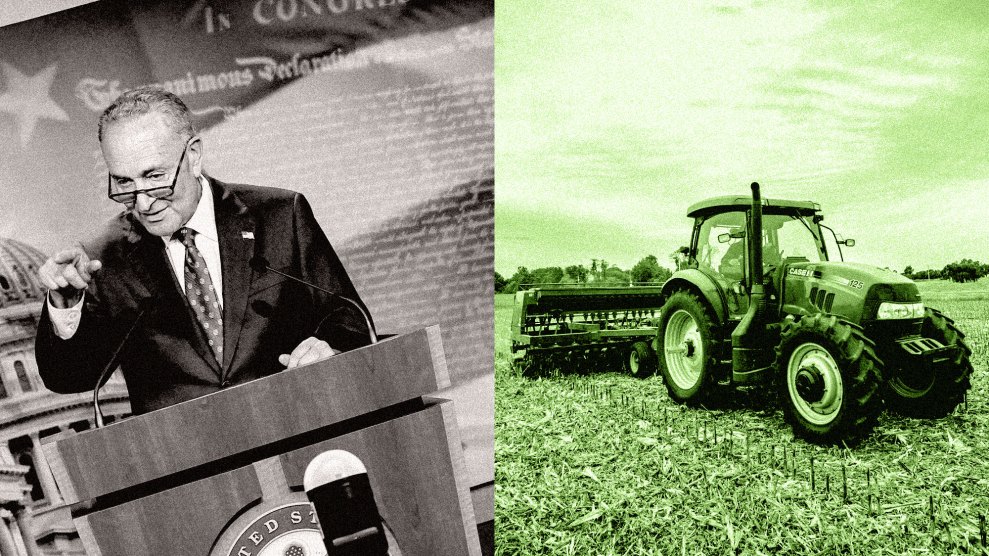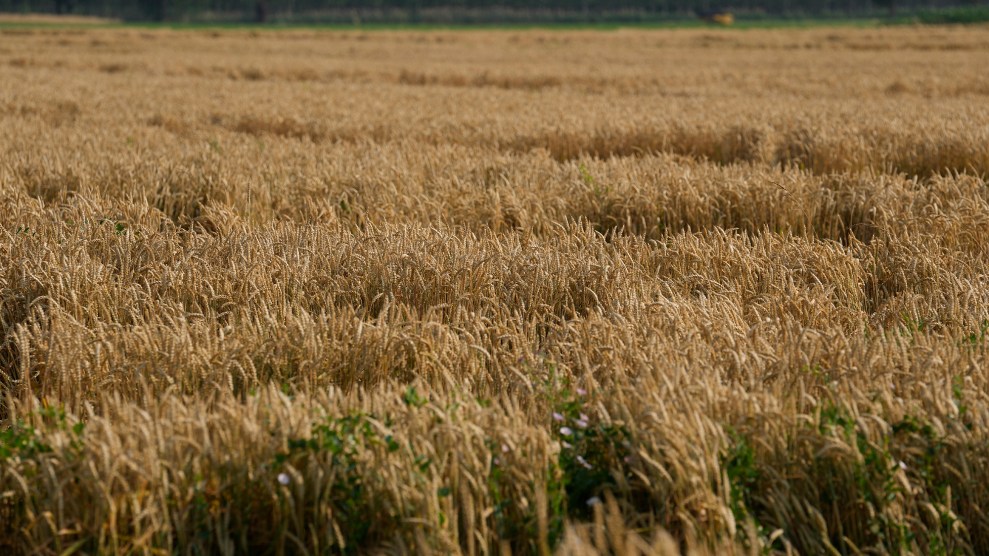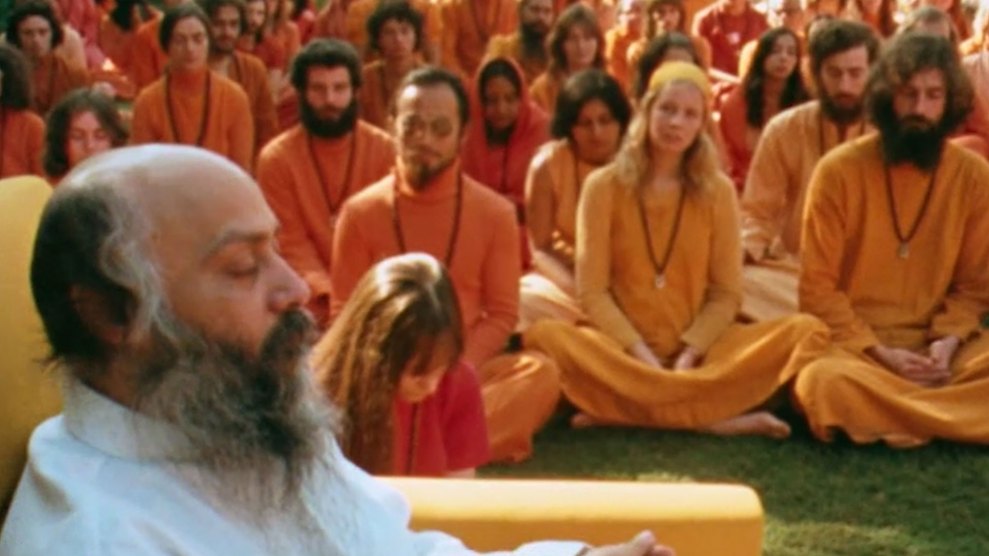
Netflix
Netflix’s new documentary series Wild, Wild, Country is a fascinating tale of the Rajneesh movement’s time in rural Oregon. A spiritual organization with its roots in India, the Rajneeshees moved to, and eventually took over, Antelope, a hamlet about 3 hours away from Portland. In 1984, the group published Zorba the Bhudda: Rajneesh Cookbook, an unorganized collection of recipes.
“The Rajneeshees very much loved food,” explains writer Melissa Locker, an Oregon native whose family had a copy of the cookbook, on a recent episode of our food podcast Bite. “It was in line with [their leader] the Bhagwan’s teachings that food is associated with love. It was very much a free-love, free-sex cult—until things got very dark.” (The interview with Melissa starts at 1:49 in the below player.)
Federal and state investigators targeted the group after hundreds of nearby residents were poisoned with salmonella scattered among salad bars by the Rajneeshees, and the compound began to dissolve in 1985.
If you’re hungry for more about the Rajneeshees, we’ve set out a buffet of further reading:
- For a 1986 story, the New Yorker‘s Francis FitzGerald visited the ranch cum city that the movement named Rajneeshpuram, writing a detailed account of her ten days on the compound:
“The head cook, an ebullient young woman with a mass of curly blond hair, said the asparagus had been bought from a local supplier but all the vegetables were homegrown…”We make everything,” she said. “Brioches, croissants, cheesecake—you name it.” Opening the oven, she showed us dozens of loaves of bread—nut bread, oatmeal bread, whole-wheat bread, and one particularly good-looking loaf that had a ticket on it marked “Bhagwan.”
- Win McCormack, a veteran Oregon editor and publisher, wrote dozens of investigative articles on the Rajneeshees. He now owns the The New Republic, which has reposted extensive excerpts. One describes how a Congressman, over gin martinis in his Washington office, first shared his theory that the Rajneeshees were behind a local salmonella outbreak.
- Dylan Thuras wrote “The Secret’s in the Sauce: Bioterror at the Salsa Bar,” which you can find over at Slate. It’s an easily digested account of how the Rajneeshees smuggled their bioagents—codenamed “salsa”—into the region’s restaurants.
- Finally, head down to your local crunchy food coop or Seventh Day Adventist store, after browsing Zorba the Bhudda yourself. The podcast Kick Ass Oregon History has uploaded an 123 page Adobe pdf of this cookbook dedicated to—who else?—the Baghwan. Up for trying ‘Champagne Charlie’ or a mock-chicken brieburger?

